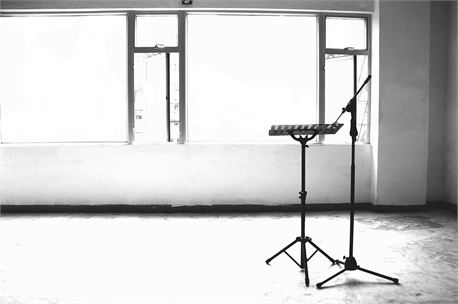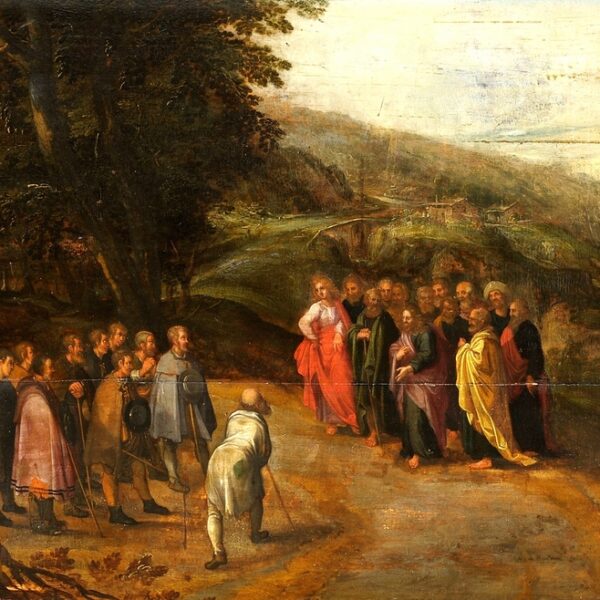The connection between paradigm shifts and repentance

All the attention because He’s worth it
October 27, 2021
Trust the experts? “Nobody loves you that much except Jesus!”
November 11, 2021A paradigm shift is defined as a radical change in thinking from an accepted point of view to a new belief (Merriam-Webster). The phrase “paradigm shift” is somewhat contemporary (Webster’s New World Dictionary from 1962 doesn’t contain the phrase) and originates from the scientific use of models and patterns (paradigms), necessitating a “shift” when new discoveries produce anomalies – or deviations – in the current trend.
That the word “pattern” is foundational to the word paradigm brings Romans 12:2 to mind, in which the Apostle Paul exhorts us “do not be conformed to the pattern of this world but be transformed by the renewing of your minds” (NIV).
Why are paradigm shifts so difficult?
It isn’t easy to break from the pattern of thinking pounded into us daily by the influential voices surrounding us. An important change in thinking:
1) Is destabilizing. If I’m wrong about this, perhaps I am wrong about other things. If so-and-so or such-and-such organization is not trustworthy, that represents a large cross-section of my belief system now called into question.
2) Requires humility. Am I willing to admit, to someone else and even to myself, that I was mistaken, misinformed, or that I misjudged?
3) Challenges and forces action. In light of this new knowledge or awareness, what is my responsibility? How will my daily activity, habits, and relationships be affected?
Moreover, a paradigm shift calls for critical thinking. And as the economist Thomas Sowell noted of our current culture, “The problem isn’t that Johnny can’t read.The problem isn’t even that Johnny can’t think. The problem is that Johnny doesn’t know what thinking is; he confuses it with feeling.”
Repentance and Loneliness
To discover that the original Greek word for “repent” is metananeo – “to change one’s mind” – is in itself a game changer. Repentance is more than just forsaking immorality, but about thinking differently, about viewing the entire world differently than when we were without Christ. When this occurs, we truly are separate and set apart. There is a degree of isolation in such nonconformism. A. W. Tozer’s observation that “The Saint Must Walk Alone” comes to mind. Indeed, for the one walking in the Spirit, “the gulf between him and society widens.”
These musings come as the last nineteen months have brought about unparalleled paradigm shifts. They have happened in scores of people whose paths have crossed my own and who are shocked as they testify that for the first time they’ve questioned the upside down nature of the world around them and in doing so, glimpsed “the man behind the curtain.”
It has happened in me. I can’t remember in fact when I’ve had so many dramatic paradigm shifts in such a short amount of time concerning so many issues. Even the way I look at food is differently than it was two years ago.
My paradigm shifts have humbled me. New knowledge has made me see that people I once thought were perhaps a little out there were in fact more in tune with reality than I was.
In summer 2020, I wrote a piece on God using coronavirus to sift the church. Covid has been used to expose unrighteousness not just in the church, but in all our systems, including education and banking and medicine, and every other institution the masses blindly trusted to operate with the public’s best interest in mind.
Where do we go from here?
“The Spirit of Truth will guide you in all truth” (emphasis mine). “You shall know the truth and the truth shall set you free.” Paradigm shifts and repentance are part of the sanctification process. They are not always a pleasure. But they free us to be an effective royal priesthood unto our Lord (1 Peter 2:9, Revelation 1:6), able to testify of the truth and to “have nothing to do with the fruitless deeds of darkness, but instead to expose them” (Ephesians 5:11, NIV).
The Lord is asking each of us which path we will take. The broad way of thinking leads to destruction, while the less traveled narrow road leads to life.
“For the weapons of our warfare are not of the flesh but have divine power to destroy strongholds” (2 Corinthians 10:4, ESV).
We are freely set free to set others free.





